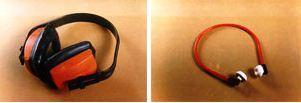Deafness and hearing loss
Hearing impairment, deafness, or hearing loss refers to the total or partial inability to hear sounds.
Symptoms may be mild, moderate, severe, or profound. A patient with a mild hearing impairment may have problems understanding speech, especially if there is a lot of noise around, while those with moderate deafness may need a hearing aid.
Some people are severely deaf and rely on lip-reading to communicate with others. People who are profoundly deaf can hear nothing at all and can find themselves totally reliant on lip-reading or sign language.
Hearing loss vs. deafness
It is important to distinguish between the different levels of hearing loss.
Hearing loss: This is a reduced ability to hear sounds in the same way as other people.
Deafness: This occurs when a person cannot understand speech through hearing, even when sound is amplified.
Profound deafness: This refers to a total lack of hearing. An individual with profound deafness is unable to detect sound at all.
The severity of hearing impairment is categorized by how much louder volumes need to be set at before they can detect a sound.
Some people define profoundly deaf and totally deaf in the same way, while others say that a diagnosis of profound deafness is the end of the hearing spectrum.
What causes hearing loss?
Noise exposure and aging are the most common causes of hearing loss. Other possible causes of hearing loss include:
- Heredity
- Ear infections, meningitis, or other diseases
- Trauma
- Medicines
- Tumor pressing on the hearing nerve
- Chemical exposures
- Earwax
Prevention of Hearing Impairment
 Avoid marriages amongst close relatives.
Avoid marriages amongst close relatives.- Immunize adolescent girls and women in child bearing age against Rubella.
- Ensure good health of the expectant mother – seek health check-ups at regular intervals.
- Expectant mother should avoid contact with persons suffering from infectious diseases.
- Make sure that the delivery is performed under the supervision of a trained person.
- Follow the child’s immunization schedule properly.
- Maintain good ear hygiene:
- Keep the ears clean, free from dust, water, wax etc.
- Do not clean or scratch your ears with pointed objects like matchsticks, hairpins, pencils etc. It can rupture the eardrum or injure the ear canal.
- Avoid slap or blow to the ear as it can cause a hearing problem that may be irreversible.
- Keep a watch on young children playing with tiny objects like beads, seeds etc. If they put them in the ear, the eardrum may get ruptured or the ear canal may be injured.
- Do not put oil or any other liquid in the ear as they can result in pain, swelling and ear discharge. Keep your ears dry always.
- Do not swim in dirty water. Unclean water entering the ear can cause ear infection. While swimming always plug your ears with cotton, especially while diving. This prevents the water from directly entering your ear and rupturing the eardrum.
- Do not have your ears cleaned by roadside quacks. They use unclean instruments, which may cause infection. The eardrum too may get damaged. Clean your ears with cotton buds regularly or get them cleaned by a doctor.
- Avoid using unwashed pillow covers, towels, etc., used by a person with ear discharge. This may cause infection in your ear too.
- While feeding a baby keep its head raised otherwise milk may enter into the ear cavity (through the small passage connecting the throat and the ear). It can cause pain with swelling and ear discharge.
- Avoid exposure to loud sounds.
- Do not take medicines without the doctor’s advice.
- Use ear protectors while working in noisy places.

Many of the factors causing hearing impairment cannot be always controlled. But knowledge about these factors helps us in identifying ‘at risk’ individuals. A detailed hearing evaluation is recommended to start rehabilitative measures as early as possible to ensure a bright future for the individual.

 Avoid marriages amongst close relatives.
Avoid marriages amongst close relatives.